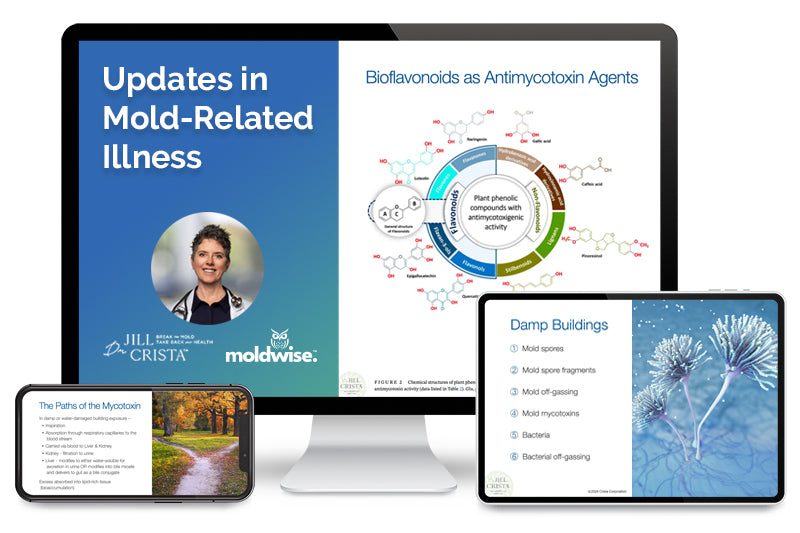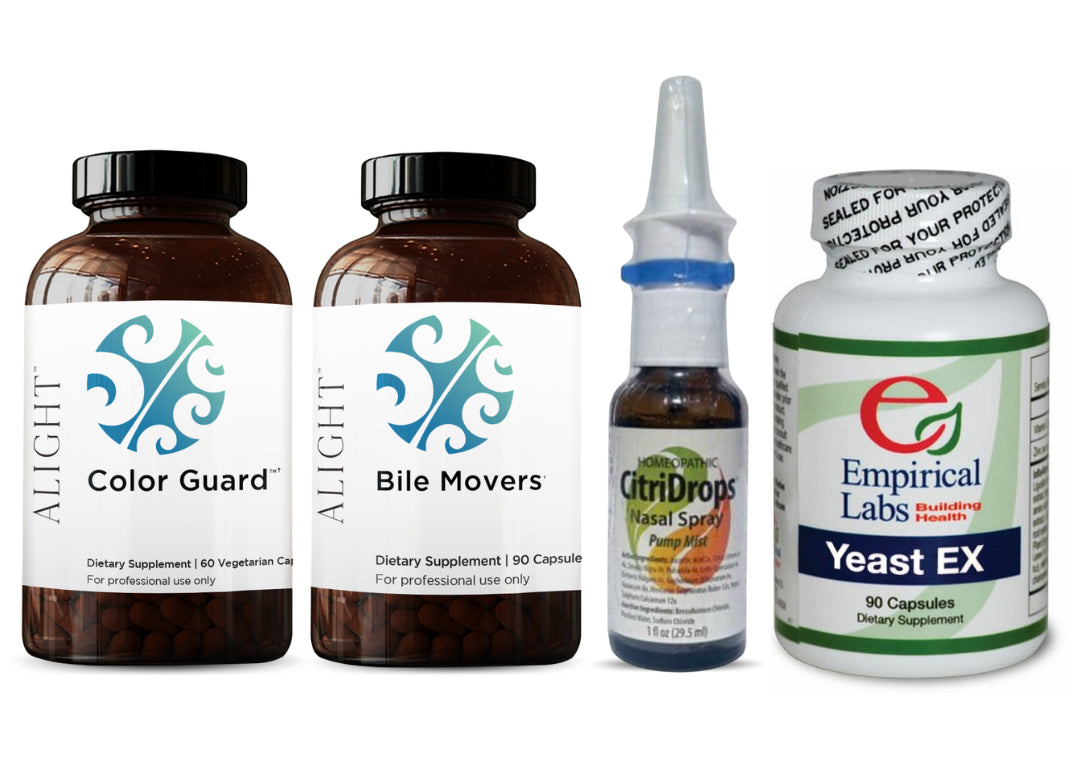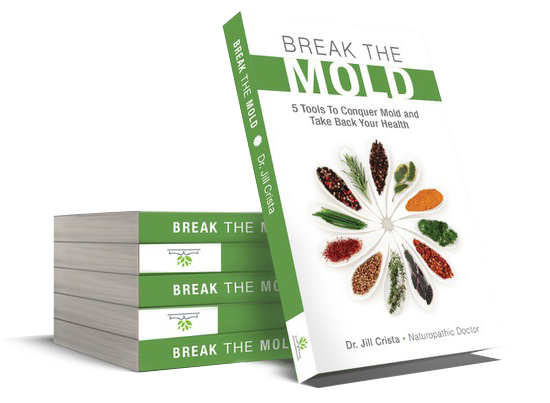
Mycophenolic acid (MPA)
Mycophenolic acid (MPA) is a mold metabolite that’s excreted during the spore’s growth phase. It’s important to realize that it’s not a mycotoxin, because unlike mycotoxins, MPA will be present wherever there’s living, metabolizing mold. Whereas mycotoxins are made sporadically and only under competitive environments. But MPA is off-gassed as a natural part of mold’s metabolism. Where there’s MPA, mold is growing.
MPA is cleared relatively quickly with treatment, which suggests that persistently high MPA could be found in people continuing to be exposed to growing mold.
MPA affects multiple body organs, with high impact on the gut, mucosal linings, and immune system. It’s been made into pharmaceuticals for organ transplant patients to stop the immune system from rejecting the foreign organ. It does this by impairing the immune cells from being formed. In this way, it’s a potent immune suppressant that leads to susceptibility to bacterial, viral, and fungal infections.
MPA also has effects on heart cells causing cardiac symptoms, and can lead to pregnancy difficulties, including miscarriage, and birth defects in the baby.

MPA Bundle & Save
Buy now
Signs & Symptoms
- Low white blood cell count
- Low platelets
- Electrolyte imbalance
- Anemia
- Frequent, reactivated, chronic infections
- Delayed/non-healing wounds
- Canker sores
- Abdominal pain, nausea, vomiting, diarrhea
- Loss of appetite
- Food sensitivities
- Weight changes
- Heart palpitations
- Short of breath
- High blood pressure
- Urinary frequency/pain
- Peripheral neuropathy
- Peripheral edema
- Breast implant illness
- Miscarriage, birth defects
- Sun sensitivity
- Cancer: skin, leukemia
Sensitivity
MPA is metabolized by certain enzymes, which may be inhibited by certain detox herbs. People with MPA toxicity can experience surprising negative reactions to otherwise reasonable detox regimens.
Possible negative reactions to milk thistle or Chinese skullcap (potential UGT inhibitors) may indicate a high MPA toxic load.
Download the MPA Fact Sheet for Patients

Mycophenolic Acid Q&A with Dr. Crista

Medical Practitioner Technical Sheet
The MPA Tech Sheet for Practitioners is included in the Updates in Mold-Related Illness course materials




